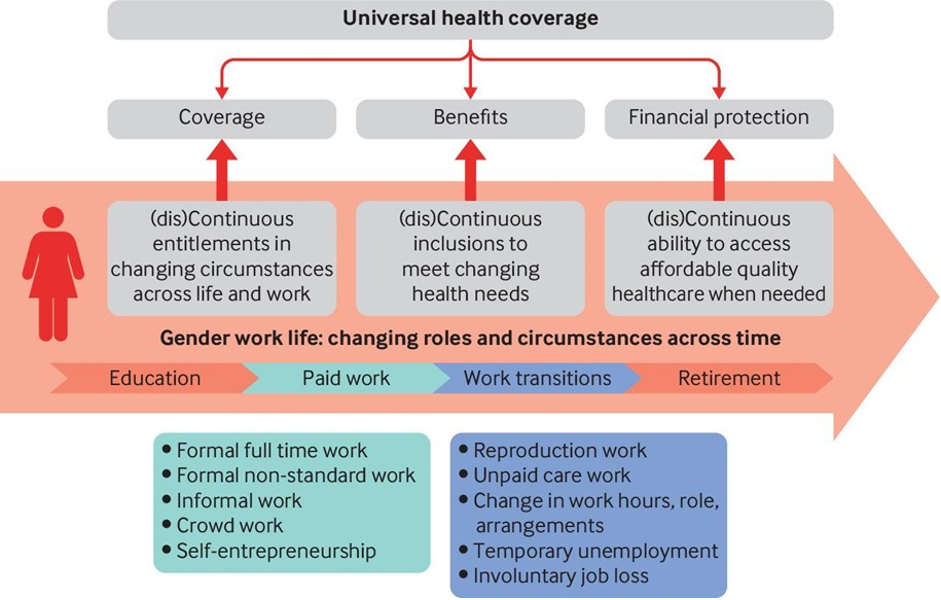Employment based health financing does not support gender equity in universal health coverage
Global commitments to improve women’s access to healthcare have been made repeatedly, most recently through the sustainable development goals and the 2019 political declaration on universal health coverage. These commitments echo the vision of the 1995 Beijing Declaration to ensure that women access equitable, appropriate, affordable, and quality healthcare throughout their life. Yet, 25 years later, women remain disproportionately underserved, and their basic health needs remain unmet.
In this BMJ paper, Professor Sophie Witter et all argue that health financing and entitlement systems linked to employment can actually disadvantage women.
Access this paper on the BMJ website.

Fig 1. Gendered work trajectories and continuous universal health coverage
Authors
- Lavanya Vijayasingham, Postdoctoral Fellow
- Veloshnee Govender, Scientist
- Sophie Witter, Professor of International Health Financing and Health Systems
- Michelle Remme, Research lead—gender and health